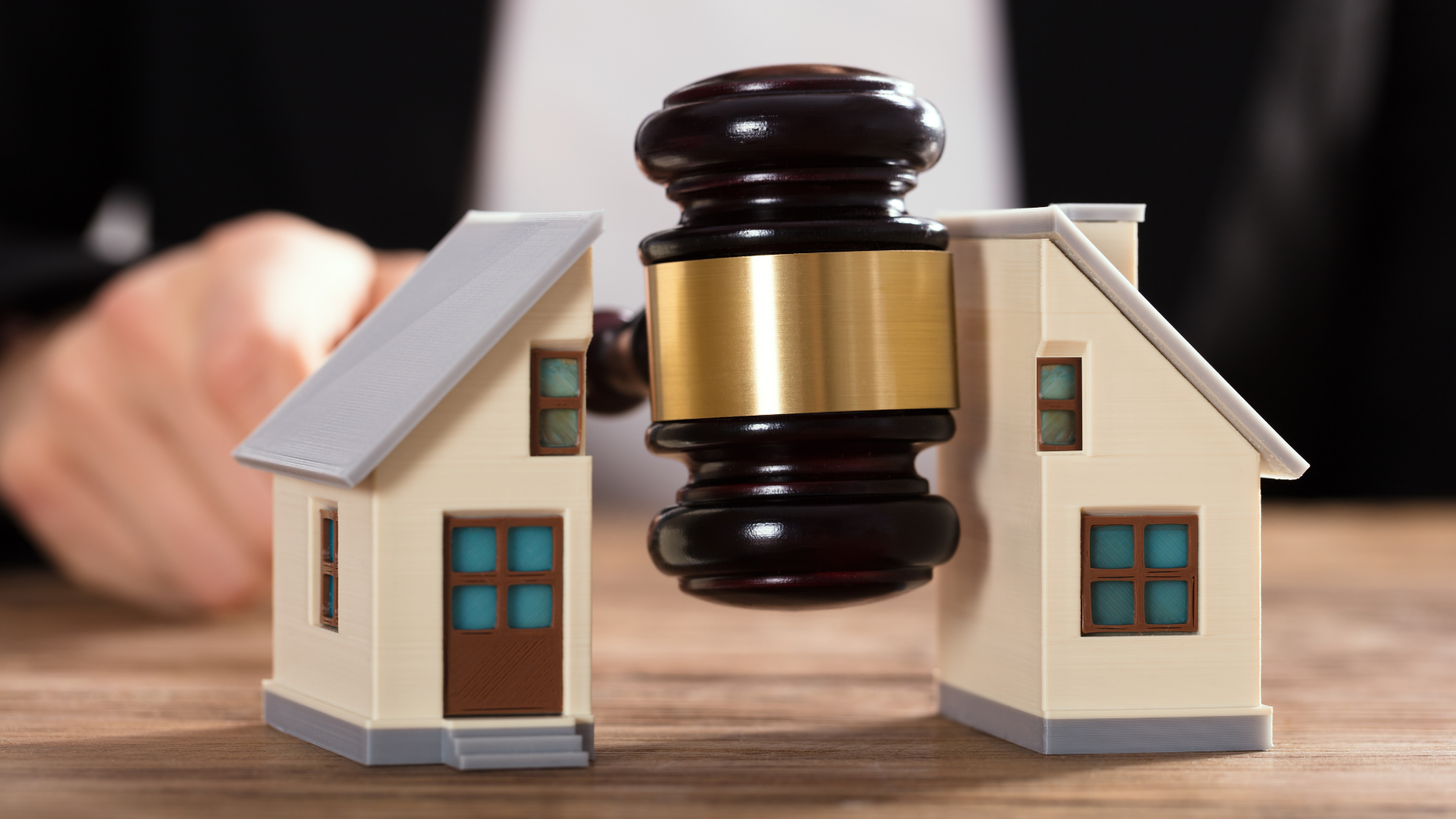Transferring Your Matrimonial Property to Your Ex-Spouse in a Divorce
This article answers a few frequently asked questions about transferring matrimonial property to ex-spouse in a divorce
What Will Happen to Your Property if You Get Divorced?
If a married couple decides to get divorced, their property will have to be divided between them if the court deems it a matrimonial asset, whether it’s an HDB flat or a private property.
But, if the court decides that your property is not a matrimonial asset, it will not have to be divided up and each of you will be allowed to keep your respective ownership shares in the property.
In What Circumstances Would I be Forced to Transfer My Ownership Share in Our Property Over to my Ex-Spouse?
If the court concludes that it would be fair and reasonable for your ownership share of the matrimonial property to be transferred to your ex-spouse, you will have to obey that order. It doesn’t matter whether your property is being held in joint tenancy or tenancy-in-common.
However, the court doesn’t have to force the transfer of your ownership share in the property if you and your ex-spouse can agree on the disposition of the property after your divorce.
For example, the two of you may come to an agreement that allows you to transfer your ownership share in the property as a gift to your ex-spouse or for some form of compensation for him/her.
What Circumstances Would Allow My Ex-Spouse to Keep Our HDB Flat?
If your ex-spouse is legally entitled to keep your HDB flat after you’re divorced but the 5 years Minimum Occupation Period (MOP) for keeping the flat is not up, the flat must be turned over to HDB upon your divorce at the prevailing price.
If the MOP is up, your ex-spouse would be allowed to keep the HDB flat in the following circumstances:
- If your ex-spouse has custody of the child(ren) from the marriage, and he/she is in a position to finance the home loan on the HDB flat.
- If there are no child(ren) from the marriage and your ex-spouse meets the eligibility requirements of the Single Citizen Scheme.
- If either yours or your ex-spouse’s parents’ names are included on the flat’s application.
If you are in one of the circumstances listed above, you will be allowed to transfer your ownership share in the HDB flat over to your ex-spouse, so he/she can keep it.
If you are not in any of the circumstances listed above, you and your ex-spouse will have to sell your HDB flat on the open market.
What is the Process for Transferring My Ownership Share in Our HDB Flat Over to My Ex-Spouse?
First, you must designate either a private or an HDB lawyer to handle the transfer of your ownership share of the HDB flat over to your ex-spouse. HDB will then decide whether this lawyer can act on your behalf if you opt to designate him/her.
How and where do I apply to transfer my ownership share of our HDB flat?
Before you are allowed to apply to transfer the property, you have to refund any grants from the government used to buy the property, like a CPF housing grant, plus you have to repay all loans.
Once that’s done, you may go ahead and submit your application along with all the necessary supporting documents. You can do this online through My HDBpage. Once you’ve done that, your ex-spouse has to give his/her consent to this transfer, which is also done online at My HDBpage.
For further details on the application process, you can refer to HDB’s website.
Which documents am I required to submit to transfer the property?
The following are the documents you will need original copies of in order to get your transfer application processed:
- Identity Card
- Duplicate Lease (if applicable)
- Divorce papers (e.g., Certificate of Making Decree Nisi Absolute)
- Deed of Separation (if applicable)
- If the transfer was ordered by the court, a written confirmation from the CPF Board stating that they consent to the court-ordered transfer of ownership
- Confirmation from your private lawyer in writing that he/she is acting on your behalf in the transfer
- If you or your ex-spouse is in undischarged bankruptcy, written consent from the Official Assignee for the change of ownership
- A valid HDB Power of Attorney if your ex-spouse is out of the country
- Any other documents that HDB requests
How much will it cost me to transfer the ownership?
It is up to the court to decide who must pay for transferring the ownership, you, or your ex-spouse.
If it is determined that you must pay the costs of the transfer, you will receive a letter from HDB informing you of what they estimate the fees will be, and which documents will be needed to finalise the transfer once your application has been processed.
Fees owed usually cover the following:
- Administrative fees
- Stamp duties
- Conveyancing fees
The amount due for conveyance fees and stamp duties depends on the type of flat, share of ownership to be transferred, and the loan amount.
You and your ex-spouse must attend an in-person meeting at the HDB branch at which time the transfer will be finalised after full payment is made of all fees.
What is the Process for Transferring My Share of a Private Property Over to My Ex-Spouse?
If you are being compensated for your ownership share in the private property, you must carry out the terms of a sale and purchase agreement.
If the private property is being transferred as a gift, but is subject to a CPF or mortgage charge, you must confer with the CPF Board and your bank for instructions on how to handle a gift of property ownership to your ex-spouse.
Transferring Private Property Subject to a CPF or Mortgage Charge
The current mortgage payment will typically be discharged in the process, so you will stop being responsible for the mortgage payments (more below). Your ex-spouse will have to get a new loan on the property since he/she will then be the sole owner.
A new mortgage may be arranged by either a bank loan or an HDB loan if he/she does not have sufficient cash or CPF funds to pay for the property in full.
Will I have to keep making mortgage payments while the transfer is pending?
No. Your ex-spouse will be responsible for making the mortgage payments on the existing loan until the transfer of ownership is complete.
However, if your CPF funds were used to buy the property, you must refund CPF for the amount you withdrew from your CPF account(s), along with accrued interest, prior to the CPF charge lapsing.
Transferring Private Property NOT Subject to a CPF or Mortgage Charge
If the private property you plan to transfer your ownership share in as a gift is NOT subject to a CPF or mortgage charge, you must do the following:
- You and your ex-spouse must enter into and create a Deed of Gift
- Pay the stamp duty owed on the Deed of Gift based on the market value of the private property
- Prepare the appropriate forms, which you will file with the Singapore Land Authority along with the appropriate title document
- Lodge the Notice of Transfer with the MCST Board as well as the Comptroller of Property Tax
Once the Transfer of Ownership is Complete for Either an HDB Flat or Private Property
Will I have to keep paying my portion of the mortgage loan (if there is one)?
You will not have to pay anything on the mortgage loan (if there is one) once the transfer is complete unless you’ve agreed to.
Mortgage payments are now the responsibility of your ex-spouse because he/she is the future owner of the property, and the payments will only be of benefit to him/her.
Your ex-spouse needs to be able to refinance the outstanding balance on the loan, otherwise, you can sell your flat on the open market.
However, the court in its discretion may order you to keep making the mortgage payments, if for example, the court decides justice would not be served by ordering your ex-spouse to bear full responsibility for repaying the mortgage.
If you think that it would serve the best interests of your child(ren) to keep your matrimonial home, you might consider paying a portion of the mortgage loan repayments.
Must my ex-spouse repay me for what I paid towards purchasing the property?
Your ex-spouse must pay you back for the amount you paid towards the property’s purchase, by either refunding your CPF account(s) or in cash, but ONLY if he/she is ordered to by the court. It will be up to the court to decide how much money he/she must repay/refund.
If there was no court order for your ex-spouse to refund your CPF account(s) in the initial ownership transfer of the property to your ex-spouse, he/she does not need to refund your CPF accounts(s) even if the flat is sold at some point.
This would be the case even if you didn’t use your CPF monies to finance the HDB flat but had pledged it in lieu of the Retirement Sum.
Do I have the right to ask my ex-spouse to please sell the property?
Once the property is transferred per a court order, you may want him/her to sell the property to allow you to receive part of the proceeds from the sale. However, you have no legal right to force the sale once you have already transferred your ownership share to your ex-spouse.
Should your ex-spouse sell the property of his/her own free will, you will not be compensated for your share of the property if your ex-spouse was not ordered by the court to repay you for the amount you contributed to the purchase price. This applies to your CPF funds as well.
What would happen if my ex-spouse agreed to give me back my share of the property?
If you were ordered by the court to transfer your ownership share of your HDB flat over to your ex-spouse, the CPF doesn’t have the power to cancel the transfer and give you back your original ownership share of the HDB flat.
On the other hand, your ex-spouse can give you back your share of any other property.
Once I’m Divorced, Would I be Allowed to Rent or Buy a New HDB Flat?
There are several schemes that help divorcees rent or buy HDB flats. You may also be eligible to receive a housing grant.
You can learn more about these government schemes and find out whether you may be eligible by reading our article on how divorcees can buy or rent HDB flats.
Should you need legal advice on the divorce process, transferring your ownership shares in your matrimonial home over to your ex-spouse, or other divorce related issues, we invite you to contact one of Pinnacle Estate Agency’s divorce lawyer partners. We do not earn referral fees or commissions.
At Pinnacle Estate Agency, we strongly believe in sharing our real estate knowledge to the public. For more content like this article, check out our Singapore Property Guides.







